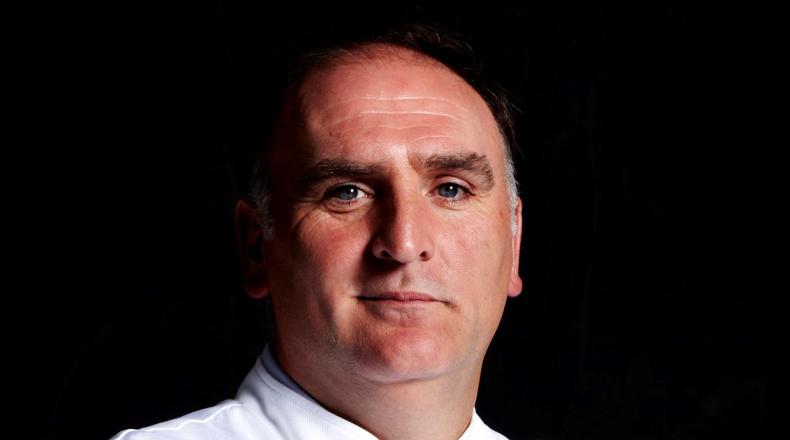AFP ICON 2020: Q&A with José Andrés

José Andrés is an internationally recognized culinary innovator, author, educator, television personality, humanitarian, and chef/owner of ThinkFoodGroup. A pioneer of Spanish tapas in the United States, he is also known for his groundbreaking avant-garde cuisine and his award-winning group of 31 restaurants plus a food truck, located throughout the country, as well as in Mexico City and the Bahamas.
Andrés formed World Central Kitchen, a nonprofit that provides smart solutions to hunger and poverty by using the power of food to empower communities and strengthen economies. Most notably, World Central Kitchen, along with #ChefsForPuertoRico, served over 3.5 million meals to the people of Puerto Rico following Hurricane Maria.
Andrés will close AFP ICON 2020 on Tuesday, March 31.
Q: Did you always want to be a chef or be involved in the culinary industry? Was there a moment where you thought, “Aha, this could be my calling?”
A: Maybe I didn’t know if I wanted to be a chef from the moment I was born, but I knew I loved to cook from a very, very young age. Both of my parents would cook for me and my three brothers, and I saw how important food was for us, for our family and friends. There wasn’t this single moment of realizing, but it always felt like the thing that I would do.
Q: How did you “learn” philanthropy? Was it part of your upbringing from your parents and family? Was it something you were engaged with growing up?
A: Giving back was a huge part of what my parents taught me when I was young. They were both nurses, so they understood the importance of helping others in our community; I learned a lot from their generosity. When I first moved to Washington, DC, I got involved with an amazing organization called DC Central Kitchen, founded by the legendary Robert Egger. He truly helped me understand philanthropy--the value of giving back. One of the most important lessons of my life came from him, actually. He says that too often, charity is about the redemption of the giver, not the liberation of the receiver. Hearing this helped me really understand what philanthropy should be, and that there is another way to look at the world.
Q: The website for your charity, World Central Kitchen, has a great statement: “The future of the nations will depend on how they feed themselves.” What does that mean in the context of what you and the organization do?
A: This quote is from a very important philosopher of food; his name is Jean-Anthelme Brillat-Savarin. To me, this quote is so valuable to understand what we are doing at World Central Kitchen. We are answering the questions of who we are today, and how we want the food system and wider world to look tomorrow. We are working to help build resilience against climate change, to build a sustainable food system, to support the farmers everywhere who are seeing the way the world will look in the future, and how important food is as we go from today to tomorrow. It’s as simple as this: through the power of food we can be changing the world.
Q: With all that is happening in our country and the world, it's easy for one person to feel overwhelmed and helpless. What advice or suggestions can you give to someone wanting to make a difference but having no idea where or how to start?
A: I think that the best thing to do is to just get started. Find an organization in your community whose work you admire and see if you can volunteer. Go to your kids’ schools and help out for a day, or a local shelter or soup kitchen. You don’t need to start your own nonprofit or donate a million dollars to make a change. This is how we do what we do. If think too big, you may get overwhelmed and end up not actually doing anything. But if you start small, and you start now – well, there you are, you’re helping make a difference!
Q: World Central Kitchen is, right now, very well known for its disaster relief and responding to emergencies, both natural and man-made. But it has several other programs. Is there a program or two that you’re very proud of that maybe people don’t know as much about?
A: You are right. We have many things going on along with our disaster relief work! We are promoting clean cooking projects in Haiti and beyond, and working to switch kitchens over to using liquified petroleum gas, as it is safe, easy to use and doesn’t present the health and environmental threats of burning wood and charcoal. We have also launched a project called Plow to Plate in Puerto Rico and have committed $4 million dollars over the next 4 years to help farmers and the agricultural industry become more food secure. The island currently ships in almost 90 percent of its food, so by building the farmers’ capacity, they are able to be more resilient against future climate disasters.